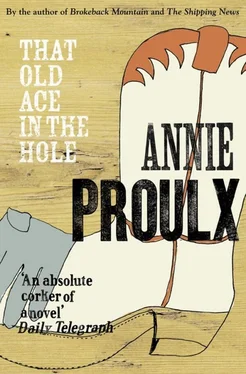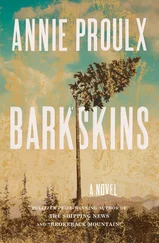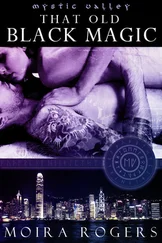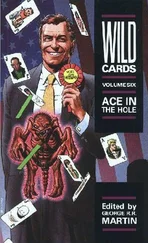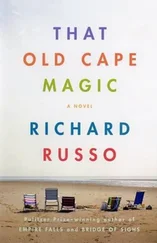Bob Dollar had no idea he was driving into a region of immeasurable natural complexity that some believed abused beyond saving. He saw only what others had seen – the bigness, pump jacks nodding pterodactyl heads, road alligators cast off from the big semi tires. Every few miles a red-tailed hawk marked its hunting boundary. The edges of the road were misty with purple-flowered wild mustard whose rank scent embittered the air. He said to the rearview mirror, “some flat-ass place.” Though it seemed he was not so much in a place as confronting the raw material of human use.
A white van turned out of a side road in front of him and he narrowed his eyes; he knew white vans were favored by the criminally insane and escaped convicts, that the bad drivers of the world gravitated to them. The van sped away, exceeding the speed limit, and faded out of sight. There appeared, far ahead, on the other side of the road, a wambling black dot that resolved into a bicyclist. A trick of the heated air magnified the bicycle, which appeared thirty feet high and shivered as though constructed of aspic. He passed another hawk on a telephone pole.
The great prairie dog cities of the short-grass plains which once covered hundreds of square miles were gone, but some old-fashioned red-tails continued to hunt as their ancestors, in flat-shouldered soar, turning methodically in the air above the prairie, yellow eyes watching for the shiver of grass. Many more had taken up modern ways and sat atop convenient poles and posts waiting for vehicles to clip rabbits and prairie dogs. They retrieved the carrion with the insolent matter-of-factness of a housewife carelessly slinging a package of chops into her shopping cart. Such a hawk, a bit of fur stuck to the side of its beak, watched the bicyclist pumping along west. As the machine moved slowly through the focus of those amber eyes the bird lost interest; the bicycle had no future in the hawk world; more rewarding were trucks on the paved highways, grilles spattered with blood, weaving pickups that aimed for jacks and snakes as though directed by the superior will on a telephone pole.
The bicyclist, reduced to human size, and Bob Dollar, in his sedan, drew abreast; the bicyclist saw a red-flushed face, Bob had a glimpse of a stringy leg and a gold chain, then the bicycle descended a dip in the road. Alone on the highway again Bob squinted at a wadded quilt of cloud crawling over the sky. There unrolled beside the Saturn the level land, every inch put to use for crops, oil, gas, cattle, service towns. The ranches were set far back from the main road, and now and then he passed an abandoned house, weather-burned, surrounded by broken cottonwoods. In the fallen windmills and collapsed outbuildings he saw the country’s fractured past scattered about like the pencils on the desk of a draughtsman who has gone to lunch. The ancestors of the place hovered over the bits and pieces of their finished lives. He did not notice the prairie dog that raced out of the roadside weeds into his path and the tires bumped slightly as he hit it. A female red-tail lifted into the air. It was the break she had been waiting for.
Bob Dollar was a stranger in the double-panhandle country north of the Canadian River. He had held two jobs in the five years since he had graduated from Horace Greeley Junior University, a hybrid institution housed in a cinder-block building at the edge of an onion field off Interstate 70 east of Denver. He had expected enlightenment at Horace Greeley, hoped to find an interest that would lead to an absorbing career, but that did not happen and his old doubts about what he should do for a career persisted. He thought a wider educational scope would help and so applied to the state university, but even with a modest scholarship offer (he had a large vocabulary, good reading habits and exemplary grades), there wasn’t enough money for him to go.
Armed with his computer printout diploma from Horace Greeley he found it difficult to land what he thought of as “a good position,” and, finally, rather than work in Uncle Tam’s shop, took a minimum-wage job as inventory clerk for Platte River Lightbulb Supply.
After thirty months of toil with boxes and broken glass and miniscule annual raises he had had an unfortunate experience with the company’s president, Mrs. Eudora Giddins, widow of Millrace Giddins who had founded the company. He was fired. And he was glad, for he did not want life to be a kind of fidgety waiting among lightbulbs, as for a report card. He wanted to aim at a high mark on a distant wall. If time had to pass, let it pass with meaning. He wanted direction and reward.
There followed five months of job hunting before he was hired on as a location man for Global Pork Rind, headquarters in Tokyo and Chicago, with a field office in Denver. He was assigned to the Texas-Oklahoma panhandle territory and sent out on his first trip for the company.
The day before he left, Mr. Cluke’s secretary, Lucille, had flashed him a red smile and waved him into the office. Mr. Ribeye Cluke, the regional operations manager, got up from behind his glass-topped desk, the gleaming surface like a small lake, said “Bob, we don’t have many friends down there in the panhandles except for one or two of the smarter politicians, and because of this situation we have to go about our business pretty quietly. I want you to be as circumspect as possible – do you know what that word ‘circumspect’ means?” His watery eyes washed over Bob. His large hand rose and smoothed the coarse mustache that Bob thought resembled a strip of porcupine. His shoulders sloped so steeply that from behind it looked as though his head was balanced on an arch.
“Yes sir. Keep a low profile.”
Mr. Cluke picked up a can of shaving cream from the top of the filing cabinet and shook it. From a drawer in his desk he removed an arrangement of braces, straps and fittings and put it over his head so that part rested on his shoulders, and another part that was a large disk against his breast. He tugged at the disk and it opened out on a telescoping arm, becoming a mirror. He applied the shaving cream to his heavy cheeks and, with a straight razor which he took from his pencil jar, unfolded it and began to shave, skirting the borders of the mustache.
“Well, that’s good, Bob. Last fellow we thought could scout for us believed it meant something that happened to him in the hospital when he was a baby. So he was no use. But you’re smart, Bob, smart as a dollar, ha-ha.”
“Ha-ha,” laughed Bob, who had increased his word power since the age of nine with The Child’s Illustrated Dictionary given him by his uncle Tam. But his laughter was subdued, for he knew nothing of hogs beyond the fact that they were, mysteriously, the source of bacon.
“In other words, Bob, don’t let the folks down there know that you are looking for sites for hog facilities or they will prevaricate and try to take us to the cleaners, they will carry on with letters to various editors, every kind of meanness and so forth, as they have been brainwashed by the Sierra Club to think that hog facilities are bad, even the folks who love baby back ribs, even the ones hunting jobs. But I will tell you something. The panhandle region is perfect for hog operations – plenty of room, low population, nice long dry seasons, good water. There is no reason why the Texas panhandle can’t produce seventy-five percent of the world’s pork. That’s our aim. Bob, I notice you are wearing brown oxford shoes.”
“Yes sir.” He turned one foot a little, pleased with the waxy glint from the Cole Haan shoe which retailed at $300 plus, but which his uncle Tambourine Bapp had fished from a donation box left at the loading dock of his thrift shop on the outer banks of Colfax Avenue.
Uncle Tarn had raised him. He was a slender, short man with vivid, water-blue eyes, the same eyes as Bob and his mother and the rest of the Bapp clan. Thick greying hair swept back from a square brow. His quick chicken steps and darting hand movements irritated some people. Bob had been a little afraid of him the first week or two because his left ear rode half an inch higher than the right, giving him a crazy, tilted look, but slowly he yielded to Tam’s kindness and sincere interest in him. His uncle’s cropped ear was the result of a childhood injury when his sister Harp cut off the fleshy top with a pair of scissors as punishment for playing with her precious Barbie doll.
Читать дальше
